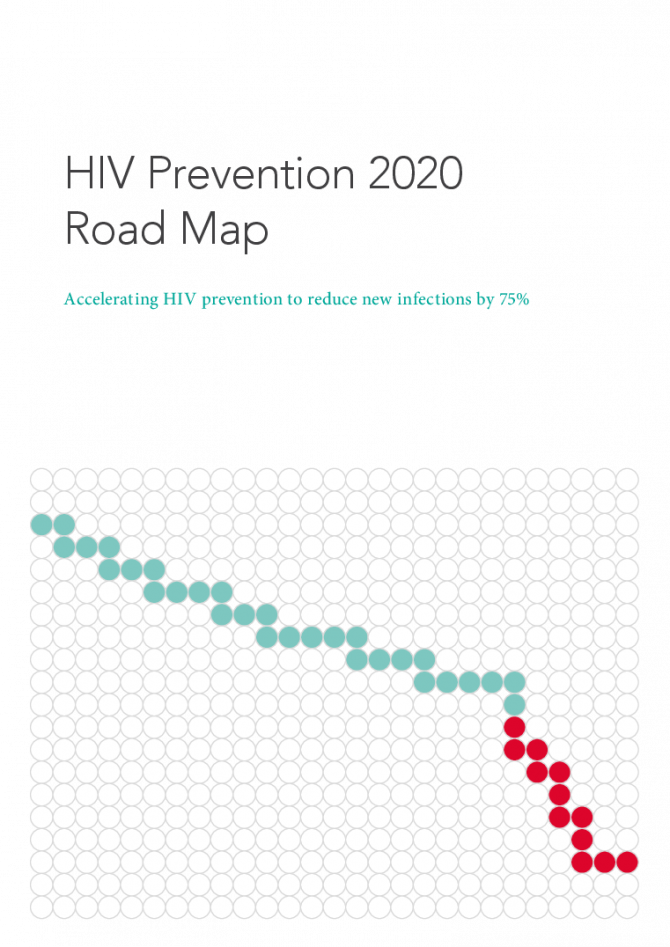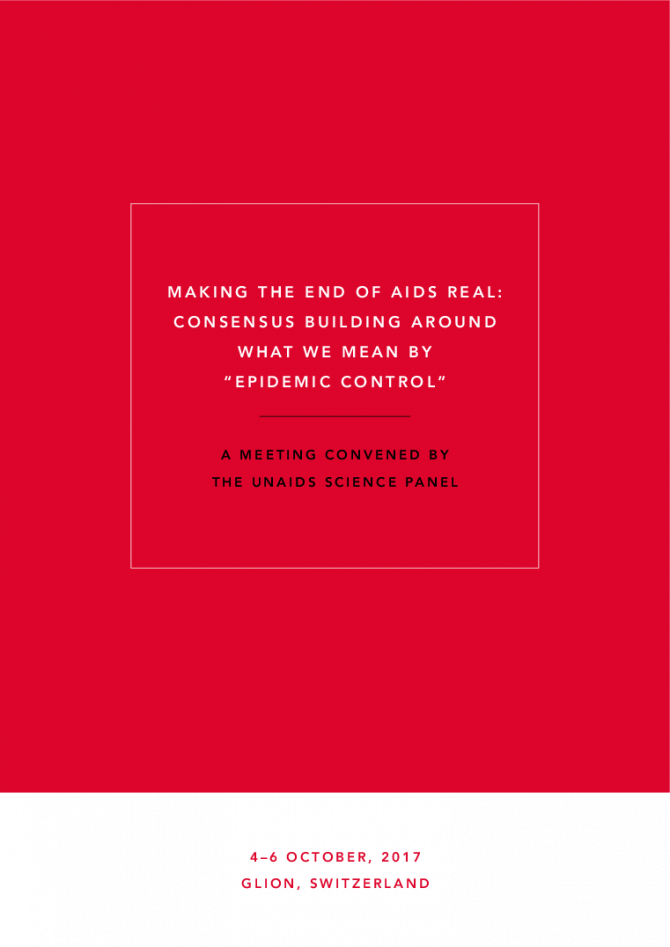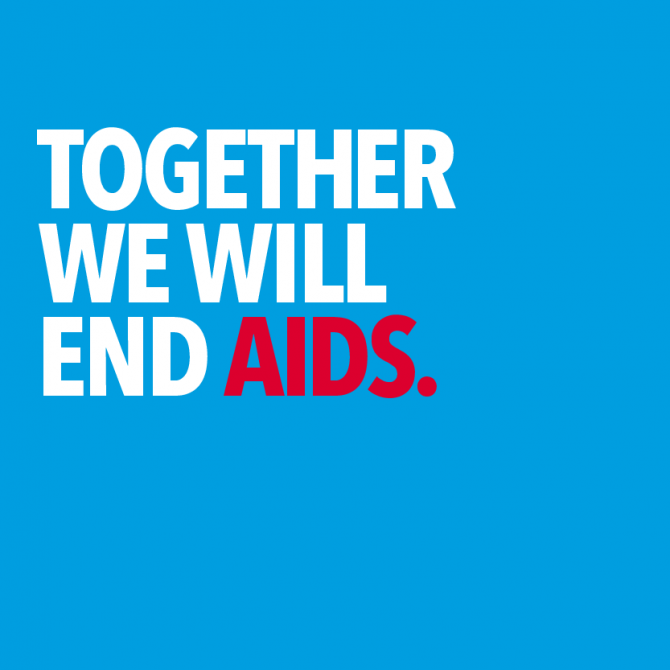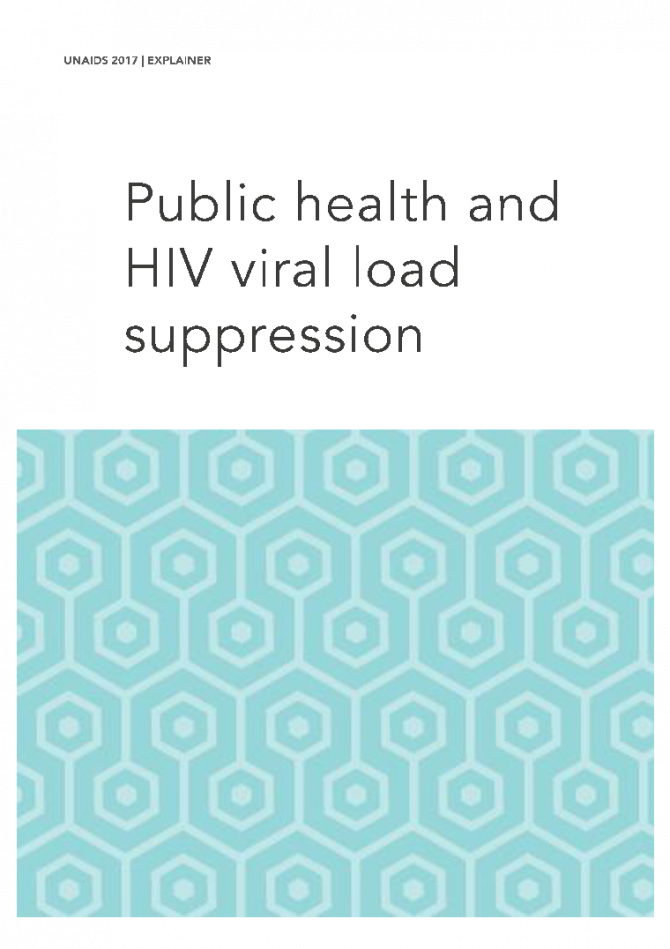Documents
HIV Prevention 2020 Road Map — Accelerating HIV prevention to reduce new infections by 75%
10 October 2017
The Road Map was prepared through a consultative process that brought together more than 40 countries and organizations, including civil society organizations, networks of people living with HIV, faith-based organizations, networks of key populations and international organizations and foundations, to chart the way forward to achieving global HIV prevention goals by 2020. Country assessments and national consultations were organized in participating countries towards reaffirming national leadership for HIV prevention, reviewing progress and discussing accelerated action for prevention. Thematic consultations and case study reviews were also conducted to develop key elements of the Road Map, most of which are also contained in a global results framework first proposed in a journal article in 2016.
Documents
Zero Discrimination Day 2018
23 February 2018
No one should ever be discriminated against because of their age, sex, gender identity, sexual orientation, disability, race, ethnicity, language, health (including HIV) status, geographical location, economic status or migrant status, or for any other reason. Unfortunately, however, discrimination continues to undermine efforts to achieve a more just and equitable world. Many people face discrimination every day based on who they are or what they do.
Documents
Confronting discrimination
02 October 2017
This report compiles the latest body of evidence on how stigma and discrimination create barriers across the HIV prevention, testing and treatment cascades and reduce the impact of the AIDS response. The report also brings together best practices on confronting stigma and discrimination, providing a valuable resource for programme managers, policy-makers, health-care providers and communities. The evidence shows that the establishment of people-centred service delivery models, supportive legal and policy frameworks, monitoring and enforcement mechanisms, and sensitization training for health-care workers and other duty bearers can promote inclusion and increase access to services.
Documents
Making the end of AIDS real: consensus building around what we mean by “epidemic control” — a meeting convened by the UNAIDS Science Panel — Glion, Switzerland, 4–6 October 2017
06 October 2017
Over the course of the three days of the meeting, a shared understanding was achieved that strong measures and targets for HIV service coverage and the impact target for ending AIDS as a public health threat are already in place. There was agreement that a new summary metric that signals countries’ progress towards ending AIDS as a public health threat and ultimately zero new HIV infections, zero discrimination and zero AIDS-related deaths would be a useful addition to (a) dispel the notion that AIDS is no longer a problem or that a tipping point of certain success will soon be reached, and (b) to help drive policy-makers and galvanize continued political commitment and financial investment in the HIV response.
Documents
Right to health
20 November 2017
All people, regardless of their age, gender, place of residence, sexual orientation or other status, have one body, one life. It does not matter if someone has HIV or breast cancer, a sexually transmitted infection or diabetes—people, no matter what their health needs, require comprehensive health solutions that are accessible, available, acceptable and of good quality. States have a duty to respect, protect and fulfil the right to health of everyone. And the world has committed to Sustainable Development Goal 3, to ensure good health and well-being for all.
Documents
Criminalisation of HIV Non-Disclosure, Exposure and Transmission: Backgroung and Current Landscape
13 February 2012
Prepared as background for the Expert Meeting on the Science and Law of Criminalisation of HIV Non-disclosure, Exposure and Transmission, Geneva, Switzerland, 31 August – 2 September 2011
This paper was commissioned by the UNAIDS Secretariat to serve as a background paper for the Expert Meeting on Criminalisation of HIV Non-Disclosure, Exposure and Transmission, 31 August – 2 September 2011, Geneva, Switzerland. This revised version was produced for use at the High Level Policy Consultation on Criminalisation of HIV Non-Disclosure, Exposure and Transmission, 14 – 15 February 2012, Oslo, Norway. The opinions expressed in the paper are those of the authors and do not necessary reflect the views, opinions and policies of the UNAIDS Secretariat or its co-sponsoring organisations.
Documents
Disability and HIV
15 August 2017
This report highlights existing key evidence on the relationship between disability and HIV. It discusses the concrete steps needed for a person-centred, disability-inclusive HIV response that allows for increased participation of people with disabilities and integrates rehabilitation within the continuum of HIV care.
Documents
Public health and HIV viral load suppression
19 July 2017









